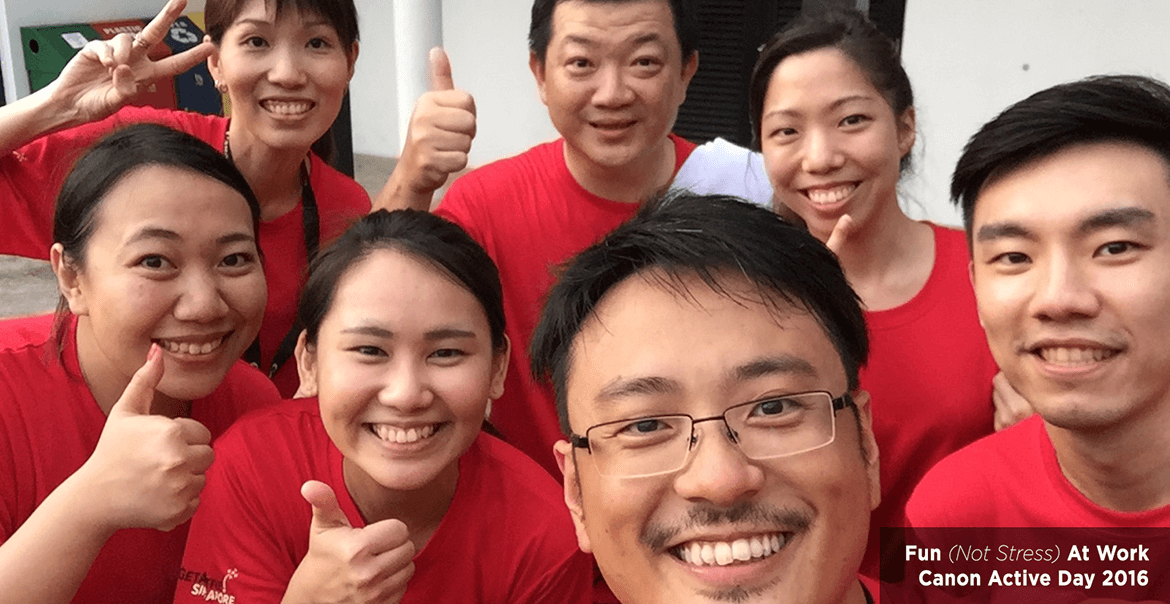My Perspective on Workplace Stress - Business Insight

My Perspective on Workplace Stress
By Vincent Low
We all know that work-induced stress is inevitable, even if you love your job. Work stress is exhibited in many forms, like the pressure to meet a deadline, or the challenge to fulfil an overwhelming task.
Stressed out employees do not make for a productive work environment, and organisations and their leaders should do all they can to reduce and moderate stress in the workplace. After all, lack of stress management in the workplace contributes to low morale, high turnover rates, and even health risks.
That being said, it rests on the individual to maintain a healthy and manageable level of stress. Here are some of my own useful reminders so as to keep your blood pressure in check.
Set Realistic Goals
First and foremost, setting realistic goals gives you a sense of direction and control. Committing to more than you can handle is often a recipe for disaster, because not only will you be stressed trying to juggle the workload, you’ll stress yourself out just thinking about it!
I make use of digital planners and apps to organise my schedule, they help ensure I don’t overcommit to activities or appointments. I schedule work as I would schedule any appointment – that helps in my time management. Sometimes, even scheduling an hour a two to clear your emails might help!
If all else fails, learn to say “no”. Nobody understands you better than yourself, you’re the best judge of your capabilities and therefore should carefully consider any time-based commitments you’re about to make. As compared to a late- or no-show, knowing how to balance the responsibilities on your plate leaves a much better impression professionally.
Eliminate Distractions
Now, it might seem counter-intuitive to suggest going offline, but it is important not to discount the luxury of focus. With all our devices, most of us remain bombarded with emails, texts, calls and notifications throughout the day – I too struggle with this daily. Add an urgent deadline to the mix and you can see why employees today are more distracted than ever.
I’m not about to suggest tossing your devices off a cliff – that would be imprudent! While you may not have control over these distractions, you can put off less urgent responses for later, so you can focus on the task at hand. Set aside time to answer emails during certain windows, and switch your devices to “Do Not Disturb” mode when you need to focus. Prioritising what is urgent and focusing on what is important can certainly relieve the stress factor.
Walk Away… Sometimes
A common misconception we have is that by working through an entire 8 – 10 hour day, we’ll get more done. This might work in theory but is neither productive nor sustainable. In this case, productivity takes a dip as you attempt to power through the day, leaving you drained towards the end of the day, with little energy to spend quality time with people who matter.
Eliminate the possibility of stress building up by scheduling little breaks throughout the day to pay attention to other areas. I see lunch breaks as an opportunity to leave the office and catch up with my colleagues without the weight of work bogging us down. Personally, when faced with many deadlines, I retreat to a quieter corner of the office, away from the phone and email. This always gives me greater clarity and focus to complete my most important tasks at hand.
Get A Healthy Perspective
At the end of the day, it is paramount to stop and consider what problems are truly stressful. Remember that there are more important things in life, such as health and family; compared to them, the stress of work would be relatively trivial. We cannot control everything around us, but we can certainly control our attitude towards them.

A successful workplace goes beyond just financials, and all companies have the impetus to foster an environment that promotes employee well-being. If it helps, have an open conversation, not to complain, but rather to come up with a solution in order for you to manage your various stress factors, so you can perform at your best. Work stress is unavoidable, and sometimes necessary to spur us on, but it is its treatment that determines whether it is beneficial or detrimental to you.

For more insights from Mr. Vincent Low, and other business solutions and insights, follow Canon Singapore on LinkedIn.
